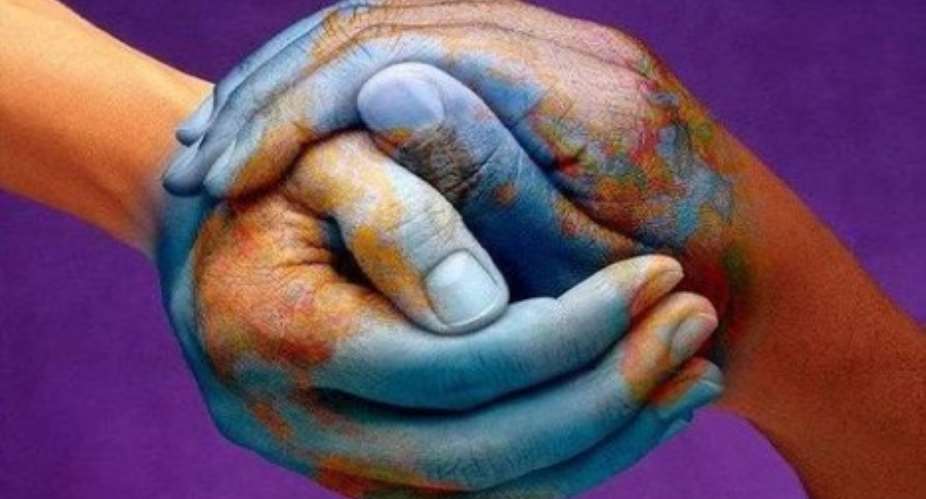Flt Lt Jerry John Rawlings has in an address delivered at the Africa Scout Conference in Kampala, Uganda, stated that the upsurge of conflict, terrorism and social upheaval across the world is not by accident, stating when people are pushed to the wall with no window to vent their frustrations, violence seems to be the only option. The global surge in social and political upheaval Flt Lt Rawlings noted; “are a direct creation of the stark inequalities we have in terms of social and economic sustenance.
He makes mention of the fact that global inequality promotes conflicts.” “All healthy and democratic societies rest on three pillars; peace and security, sustainable development and the rule of the law and respect for human rights.” Our world today on the contrary has had its fair share of conflicts. In the document “The Future We Want” there was a call for the Sustainable Development Goals to be integrated into the UN’s post 2015 Development Agenda. Among the 17 goals is ‘Reduce inequality within and among countries.” Coming to think more carefully of this though one is tempted to ask if equity is achievable and sustainable.
Even among our various countries equity is only seen on paper. In Ghana for example, development is not equally distributed between the southern and northern parts of the country. Developing countries are still depending on the advanced world for aids which come with its stringent terms and conditions.
There is widespread inequality of income and opportunity in the world we find ourselves in today. Does one make a mistake to be born into a certain family, a certain community or a certain nation? But in a globalized world, the same question may be asked as well.
"Let’s one’s income depend entirely on her country of birth thus implying that inequality within each country is zero. If she is born in a poor country, she can neither, by her efforts, improve her lot domestically nor globally, because she cannot influence alone her country’s growth rate. It thus makes no sense for her to expend effort which will lead to no improvement in income. The only venue that remains is migration.
Posed in such extreme terms, it is easy to see why the question is important: not only because it raises ethical issues (is it fair that our incomes should be decided at birth?) but because it has clear economic implications: where should, rationally, efforts of people in poor countries be directed: to work or to migrate?"
In recent happenings though, UK is reported to accept ‘thousands’ more refugees and there has been calls on the EU to accept 200,000 refugees.
We have 15 long years on our side to prove his hypothesis of Goal 10 of the Sustainable Development Goals and Mr. Kofi Annan could not have said it any better when he said; “We need to create a world that is equitable, that is stable and a world where we bear in mind the needs of others.”





 Tuesday’s downpour destroys ceiling of Circuit Court '8' in Accra
Tuesday’s downpour destroys ceiling of Circuit Court '8' in Accra
 SOEs shouldn't compromise on ethical standards, accountability – Akufo-Addo
SOEs shouldn't compromise on ethical standards, accountability – Akufo-Addo
 Father of 2-year-old boy attacked by dog appeals for financial support
Father of 2-year-old boy attacked by dog appeals for financial support
 Jubilee House National Security Operative allegedly swindles businessman over sa...
Jubilee House National Security Operative allegedly swindles businessman over sa...
 Nobody can order dumsor timetable except Energy Minister – Osafo-Maafo
Nobody can order dumsor timetable except Energy Minister – Osafo-Maafo
 Mahama wishes National Chief Imam as he clock 105 years today
Mahama wishes National Chief Imam as he clock 105 years today
 J.B.Danquah Adu’s murder trial: Case adjourned to April 29
J.B.Danquah Adu’s murder trial: Case adjourned to April 29
 High Court issues arrest warrant for former MASLOC Boss
High Court issues arrest warrant for former MASLOC Boss
 Align academic curriculum with industry needs — Stanbic Bank Ghana CEO advocates
Align academic curriculum with industry needs — Stanbic Bank Ghana CEO advocates
 Election 2024: We'll declare the results and let Ghanaians know we've won - Manh...
Election 2024: We'll declare the results and let Ghanaians know we've won - Manh...
